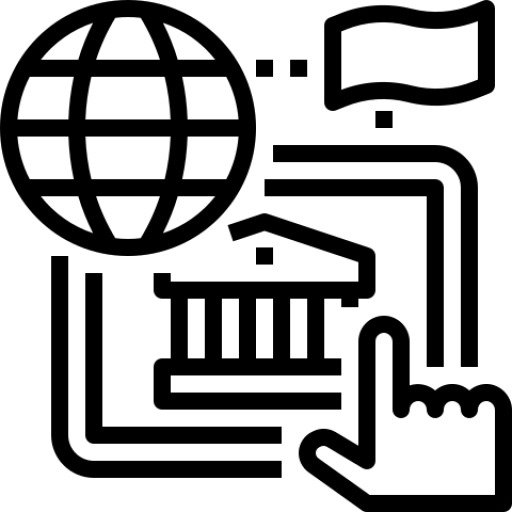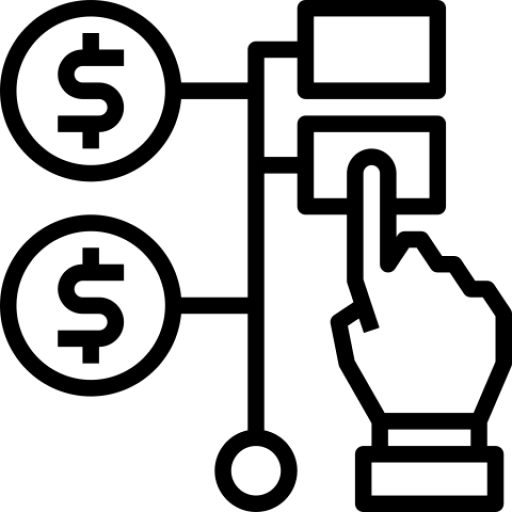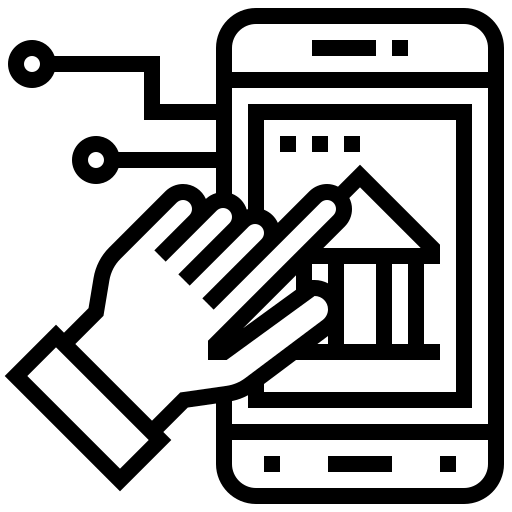FINTEX SUMMIT: Finance and Technology Summit
New trends in banking and payment ecosystem: innovative solutions, fintechs and security
About the Summit
Two day event supported by Azerbaijan Banks Association (ABA), Central Bank, Financial Markets Supervision Authority, Ministry of Transport, Communications and High Technologies and Center for Analysis of Economic Reforms and Communication is one of the two annual events organized by the ABA (second one is an annual Banking Forum organized each year in November: https://www.gbmevents.az/en/events), and is the most famous finance and banking events in of the region gathering together CEOs and management of relevant government bodies, top management of commercial banks and fintechs, managers of commercial and public organizations, representatives of international financial institutions, academician, famous companies providing finance and banking products and solutions, and other stakeholders.
The Summit has the purpose of being the platform for exchanging ideas and experiences in the field of new and upcoming trends in financial technologies, digitalization, payment ecosystems. It’s a place for discussing opportunities provided by new financial and banking products, innovative payments solutions, digital currencies, possibilities of co-existence and co-operation of banks with fintech, and security issues arising with the onrush of such technologies. Its where best practices in establishment of the legal framework for such new services and products are considered, and impact of all these processes on strengthening financial sustainability, financial inclusiveness and best customer experience are learned.
Speakers























































Schedule

The future of risk in financial services
Despite ever increasing access to global data and information, it seems harder than ever to understand where the markets and economy will go next. Financial institutions are now placing more emphasis on the importance of risk management. Banks interested in reducing the risks to their business, enabling integrated balance sheet management, and modernizing compliance must develop a clear digital strategy, redesign core processes, and establish the right digital enablers.

Fintech: the age of partnerships and collaboration
Many banks are presently struggling to get a good picture of what the future of the industry will look like. One thing which is clear, however, is that fintech (financial technology) will play a massive role in that future. The only way is to build new strong partnerships and collaboration.

Alternative finance
Alternative lending has quickly become a major force in the financial industry over the past few years. Since the financial crisis, alternative lending has risen in many forms, now covering a wide range of lending structures and purposes. The peer to peer lending market is just one piece of puzzle that is alternative lending. Our discussions in the Summit will continue on different options of alternative borrowing.

Cybersecurity more important than ever
During the COVID-19 pandemic, technology has created new opportunities for digital financial services to accelerate and enhance financial inclusion, amid social distancing and containment measures. At the same time, the risks emerging prior to COVID-19, as digital financial services developed, are becoming even more relevant.

Data: the future of banking and fintech
Data is an integral part of the Financial Services industry. Data-driven banks can use data analytics to make informed decisions and more profitably serve their customers and streamline their operations. We will discuss advantages of being data driven banks.

Blockchain & Digital Assets
With an initial purpose of a mechanism behind cryptocurrencies, today the blockchain technology has stepped far beyond just powering the bitcoin or ether transactions. Blockchain is a powerful and secure technology that is getting into almost every industry, from banking and medicine to government sector. Together we will explore the benefits and challenges of blockchain technologies.

Regulatory framework: Turning to technology
Transformations in banking as a result of the new digital age are challenging financial regulation and supervision. The ever-changing regulatory environment poses a constant challenge for financial institutions of all types. Regtech is an emerging industry that can help ease the burden of compliance. By using the latest FinTech technologies to address regulatory compliance, RegTech startups are bridging the gap between regulators and the financial service industry. Summit delivers the key insights and practical solutions to cope with regulatory challenges of the digital age.

Emerging Role of Banks in e-Commerce
Payments are the financial instruments used globally to transfer value in the form of money. The result is that there are now well over 750 payment systems throughout the world-systems that are constantly changing due to new technology or government regulations. Traditional payments players are being squeezed from all sides. We will discuss how will the latest innovations affect the payment industry.

Smart Banking Technologies
Innovative technologies in the financial sector are now revolutionizing the banking system. The superior segmentation and targeting potential these technologies provide has powered a new era of personalized, highly-targeted communications. As a result, the conventional banking scene is set to instantly shift in the coming years. Which technology trends will matter most in the months and years ahead? Big data and AI? The cloud? Digital-only banks? We will seek answers to these questions together.

Rising value “block chain” technology
Blockchain have a bright future. One of the most talked-about topics in the financial services industry today is blockchain banking. If fully adopted, it will enable banks to process payments more quickly and more accurately while reducing transaction processing costs and the requirement for exceptions. In forum, we take look the biggest key to turning blockchain’s potential into reality. Reducing costly cross border payments , making fund transfer more secure and fast almost as fast as instant must sound like a dream and Blockchain is the best option we have.

The rise of IoT era: growth, trends and forecast
There are a number of benefits that IoT offers to the financial landscape. How IoT is reshaping the banking industry? How banks can create a successful IoT strategy? Forum provide extensive discussions on - simplified decision-making processes, real-time data, improved customer service, automated payments, detect and prevent instances of fraud - the advantages that IoT brings to banking and other financial areas.

Going digital: Banking transformation
Financial institutions believe that digital will fundamentally change banking and completely transform the industry’s competitive landscape. Most banks began their digital journey years ago and have clear digital strategies, yet even those are facing major changes. A new spirit of banking—led by top executives—will lead the way to addressing market changes, becoming more agile, and improving openness in day-to-day business.

Trusted Authentication
Forum will bring together professionals focussed on strong customer authentication, integration of biometric technology for providing security of trusted authentication, building trusted identity networks. We will explore together how banks are using new authentication methods to boost conversions and keep their customers loyal? How banks can transform their relationship with the customer by using identities models?

State of e-commerce
Since its inception, the e-commerce industry has continued to grow and shows no signs of slowing down. As the e-commerce market size increases, so do the potential for incidents of web-based credit card fraud. Due to this potential, Internet-based merchants should be looking to adopt extra forms of security for their transactions. We will explore together best forms of additional e-commerce security.

Platform Banking & digital ecosystem
Cooperation with third-party providers is an important factor for providing a wide rage of services and products. Platformification is about better serving customer needs and being able to offer services beyond a limited portfolio. Customers can benefit from platform banking in multiple ways: convenience, greater choice, ability to compare products, potentially better pricing, etc.But becoming a platform, in any domain, is easier said than done. What capabilities must a bank master to become a viable platform?

Opening speech

Opening speech

Opening speech

Opening speech

Opening speech

Opening speech

Opening speech

Moderator of the Panel "TRADITION VS. NEW TECH: THE CHANGING FACE OF BANKING - THE ROLE OF FINTECHS"

Banks and Fintechs time: new opportunities, new risks, new challenges

Cryptocurrency situation and fintech in the Asia: The role of CROSS Exchange

Cryptocurrency situation and fintech in the Asia: The role of CROSS Exchange

Why fintech did not change the world of finance as quick as Uber changed transportation?

Practical cases of application of biometrics, semantic analysis and machine learning in banking

From catch-all anti-fraud to adaptive fraud prevention: How to ensure a frictionless experience while keeping payments secure

The changing face of banking: new challenges and risk
Tea break

Digital banking handover

New landmark of modern Fintech

Turkey’s Fintech Journey and BKM

Turkish Acquiring Landscape/ Banks and New Fintechs

The role of Digital Government in Fintech

The role of government digital ecosystem in the progress of financial sector
Discussions
Lunch break

Moderator of the panel "PAYMENT ECOSYSTEM: NEW PLAYERS, NEW SOLUTIONS"

State program – the road to digitalization

Visa Payments: transforming future into digital reality

Distant bank account openning

Instant payment system

Digital payment behavior of customers

MIR payment scheme: New player integration to global payment infrastructure

SWIFT gpi revolutionising cross border payments: how collective collaboration and innovation changed the market practice
Tea break

Global cross-border payments migration to ISO 20022

Alternative banking solutions: RabitabankBot

Innovative payment solutions

Agent banking – best practice and benefits

Innovations in formation of customer experience: what banks in Azerbaijan can use from the best international experience

Big bata: profitable ideas for business

Beyond the chatbot: The future of conversational AI
Discussions
Welcoming and Introduction

Moderator of the panel "SECURITY AND RISK"

Building digital governance system

First Blockchain powered ecosystem in Azerbaijan

Security in Digital Ecosystem

COBIT 2019 as EGIT Framework for Internal Control and Audit

Future of banking: 2020 vision

Multiple Layered Security Model for Crypto Currency Exchange Servicer and its Secure Sharing Wallet in Decentralized Network System
Tea break

IT regulations for banking industry

Cyber Threat Intelligence: Know The Enemy To Protect Yourself

The rules used during IT auditing at the automated banking systems

The role of bank CEOs concerning information security

Modern secure workplace for bank’s employees and Firstline workers

Building and Managing Effective SOC
Discussions
Lunch break
Welcoming and Introduction

Moderatorof the panel "MODERN TECHNOLOGİES FOR COLLECTİNG OVERDUE DEBTS"

"Decree of the President of the Republic of Azerbaijan on deepening the reforms in the judicial-legal system": innovations and digitization in court decision enforcement process

Opportunities provided by the application of the “Electronic enforcement” information system

Online collateral and loan auction platform

Machine learning techniques in collection

Best practices and technologies in collection decision management

The practice of collecting arrears in Russia. Key performance points in the form of tight limits
Tea break

Leveling Reputational Risks in Collection of Overdue Debts

Modern communication tools for debt collecting

















































































